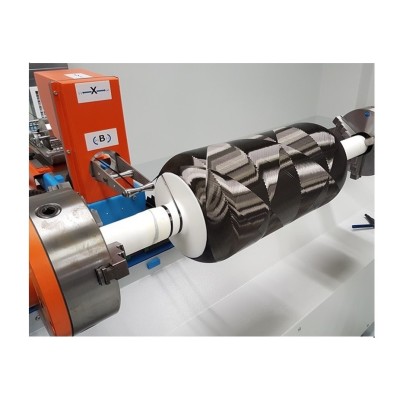- New
- Out-of-Stock



COMPOSITES PRESSURE TUBES
High-pressure gas storage vessels represent one of the largest and fastest-growing markets for advanced composites, particularly for filament-wound carbon fiber composites. Although they are used in self-contained breathing apparatuses and provide oxygen and gas storage on aerospace vehicles, the primary end markets are for storage of liquid propane gas (LPG), compressed natural gas (CNG), renewable natural gas (RNG) and hydrogen gas (H2). While LPG tanks can be used in vehicles, there is also a growing market for cooking and heating in developing countries.
COMPOSITES PRESSURE TUBES
High-pressure gas storage vessels represent one of the largest and fastest-growing markets for advanced composites, particularly for filament-wound carbon fiber composites. Although they are used in self-contained breathing apparatuses and provide oxygen and gas storage on aerospace vehicles, the primary end markets are for storage of liquid propane gas (LPG), compressed natural gas (CNG), renewable natural gas (RNG) and hydrogen gas (H2). While LPG tanks can be used in vehicles, there is also a growing market for cooking and heating in developing countries.
Pressure vessel types
Pressure vessel types and construction as classified by the American Society of Mechanical Engineers (ASME) and the International Organization for Standardization (ISO). Photo Credit: CW
Pressure vessels are organized into five types:
Type I: All-metal construction, generally steel.
Type II: Mostly metal with some fiber overwrap in the hoop direction, mostly steel or aluminum with a glass fiber composite; the metal vessel and composite materials share about equal structural loading.
Type III: Metal liner with full composite overwrap, generally aluminum, with a carbon fiber composite; the composite materials carry the structural loads.
Type IV: An all-composite construction, polymer — typically polyamide (PA) or high-density polyethylene (HDPE) liner with carbon fiber or hybrid carbon/glass fiber composite; the composite materials carry all the structural loads.
Type V: Linerless, all-composite construction.
Video
This website uses cookies to ensure you get the best experience on our website